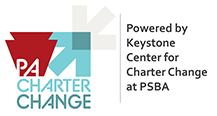More than 77% of Pennsylvania’s Public School Districts Have Adopted a Charter Reform Resolution
Media contact for Keystone Center for Charter Change at PSBA:
Lawrence A. Feinberg, Director
Larry.Feinberg@PSBA.org
Media contact for PSBA:
Annette Stevenson
Chief Communications Officer
Pennsylvania School Boards Association
Annette.Stevenson@PSBA.org
Mechanicsburg, PA (March 17, 2021) – The Pennsylvania School Boards Association (PSBA) and the Keystone Center for Charter Change highlighted today that 387 of the 500 Pennsylvania School Districts Have Adopted a Charter Reform Resolution. School officials are building steam behind the call for charter school funding reform and accountability. The outdated and flawed charter school law is long overdue for change and presently it is causing public school districts to overpay charter schools by millions of taxpayer dollars in the form of mandated tuition payments.
On the heels of Governor Wolf’s charter reform plan, which would save taxpayers over $229 million a year, more than 77% (to date) of all PA school boards have ensured their voices will be heard by formally adopting a resolution. From some of these districts, their comments reflect the challenges:
“The cost of charter schools for public school districts continues to grow. Since 2007-08, charter school tuition costs have grown by more than $1.4 billion (229.4%) while charter school enrollments have only increased by 112.9%. We simply cannot keep up with these growing costs and will be forced to raise taxes and cut programs and services for students in order to pay millions of dollars to cyber-charter schools who are not preparing our students for a successful future.” – Jeff Groshek, Superintendent of Central Columbia School District
“I find it extremely troubling that charter schools are seeking additional funding at the expense of public school districts that are already working with reduced budgets, due to pandemic-related revenue shortfalls. Why should charter schools that consistently fail to meet the basic education standards established by the PA Future Ready Index, year-after-year, be allowed to siphon even more money away from the same brick-and-mortar public schools that would incur steep financial penalties for failing to meet these same standards? – Dr. Randal Lutz, Superintendent of Baldwin-Whitehall School District
Many school districts in Pennsylvania had ongoing cyber learning programs before the COVID-19 pandemic hit, but now even more districts have firsthand calculations to reference for real costs incurred to educate students virtually.
As a school district that provides a cyber charter option in house, we know that we can offer that to students at a cost of under $6000 per year. Yet, when we have students enroll in cyber charter options that are not offered by the district, we are required to pay a tuition rate of $17, 794 for regular education and $33,020 for special education students. This demonstrates a significant overpayment beyond what is needed to operate programs and reduces the opportunities we can offer to students that remain in our brick and mortar schools. We need a system that is tied to actual, reasonable costs incurred by a charter school. – Amanda Hetrick, Superintendent of Schools, Forest Area School District
“During the pandemic, many cyber charter schools received grant funding. School districts and brick-and-mortar charter schools had to use these funds for cleaning supplies and services, additional nursing staff, personal protective equipment for employees and students to generally meet the requirements for schools to be open for students. This is a cost cyber charters did not have to incur, because of their learning model, however, they received same grant funding. This is not about charter vs public schools. It’s about equity. Equity for educating all students. Equity for taxpayers and all Pennsylvanians. Everyone will win when we make the funding more equitable. We can do this.” – Todd M. Davies, Ed.D., Superintendent of Schools, West York Area School District
The need for change transcends funding. Accountability too is being called into question. To see how charter schools are faring in academic performance and for data representing the proficiency gap between school districts and charter schools on state assessments go to PACharterChange.org.
